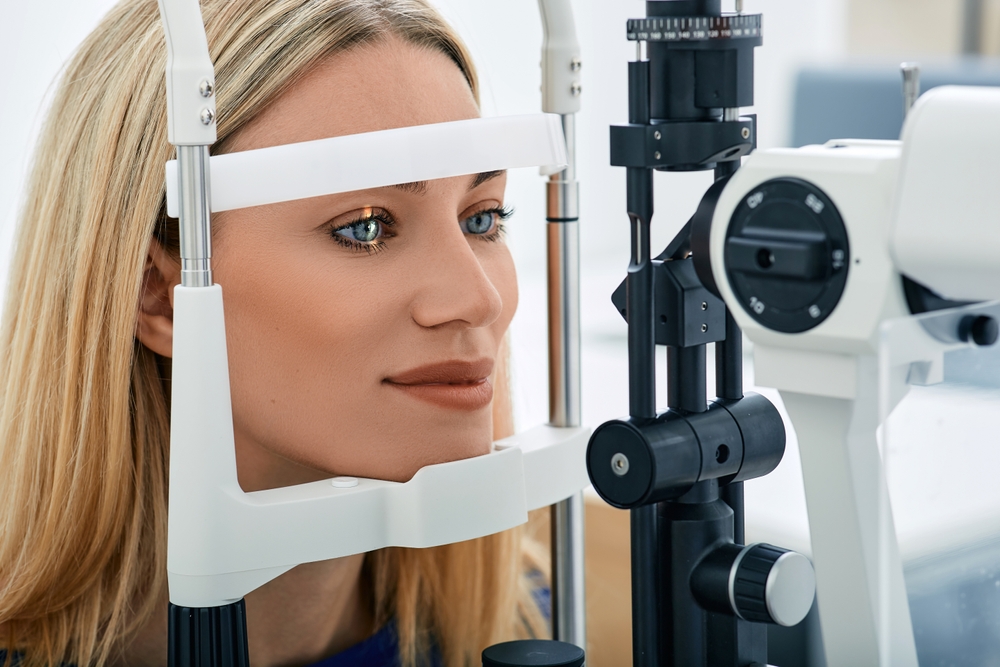The Importance of Regular Eye Exams: How Often Should You Visit Your Optometrist?
Blog:The Importance of Regular Eye Exams: How Often Should You Visit Your Optometrist?

The Importance of Regular Eye Exams: How Often Should You Visit Your Optometrist?
Your eyes are among the most remarkable and complex organs in your body. They enable you to perceive the world around you, appreciate beauty, and engage in countless activities that enrich your life. Maintaining optimal eye health is crucial for preserving your vision and overall well-being. One of the most effective ways to achieve this is by undergoing regular comprehensive eye exams.
What Is a Comprehensive Eye Exam?
A comprehensive eye exam is a thorough evaluation of your visual system, including your eyes, eye muscles, and the surrounding structures. It is performed by a licensed optometrist and goes beyond a simple vision screening. The primary purpose of a comprehensive eye exam is to assess your overall eye health, detect any potential issues, and provide appropriate treatment or management strategies.
What Does a Comprehensive Eye Exam Involve?
A comprehensive eye exam typically includes the following components:
- Medical and Vision History: Your eye care professional will gather information about your personal and family medical history, as well as any vision-related concerns or symptoms you may be experiencing.
- Visual Acuity Testing: This involves reading an eye chart to evaluate your distance and near vision clarity.
- Refraction: This test determines the most accurate prescription for corrective lenses, such as glasses or contact lenses, if needed.
- Eye Muscle Evaluation: Your eye care professional will assess the coordination and alignment of your eye muscles to ensure proper eye movement and focusing ability.
- Eye Health Examination: Using specialized equipment and techniques, your optometrist will examine the internal and external structures of your eyes.
- Additional Tests: Depending on your individual needs and risk factors, additional tests may be performed, such as visual field testing, color vision evaluation, or imaging techniques like optical coherence tomography (OCT) or fundus photography.
The Importance of Regular Eye Exams
Many eye diseases, such as glaucoma, diabetic retinopathy, and age-related macular degeneration, often have no noticeable symptoms in their early stages. Regular eye exams can detect these conditions before they cause permanent vision loss, allowing for timely treatment and better outcomes.
Your vision needs may change over time due to factors like age, lifestyle, or underlying health conditions. Regular eye exams ensure that your corrective lenses (if needed) are up-to-date and provide optimal vision for your daily activities.
Your eyes can provide valuable insights into your overall health. During a comprehensive eye exam, your optometrist may detect signs of systemic conditions like diabetes, high blood pressure, or autoimmune disorders, which can sometimes first manifest in the eyes.
For children and adolescents, regular eye exams are crucial for monitoring proper vision development and ensuring that any vision problems do not interfere with learning and academic performance.
How Often Should You Visit Your Optometrist?
The frequency of comprehensive eye exams depends on several factors, including your age, overall health, and risk factors for eye diseases. Here are some general guidelines:
- Children: It is recommended that children have their first comprehensive eye exam at 6 months of age, another exam at age 3, and then annually once they start school.
- Adults (18-60 years old) with no vision problems or risk factors: A comprehensive eye exam at least once every two years is generally recommended.
- Adults (60 years and older) with no vision problems or risk factors: Annual comprehensive eye exams are advised to monitor for age-related eye conditions.
- Individuals with existing eye conditions or risk factors: Your optometrist may recommend more frequent eye exams, typically once a year or as needed, depending on the severity and progression of your condition.
- Individuals with diabetes or other systemic health conditions: Annual comprehensive eye exams are highly recommended, as these conditions can increase the risk of developing eye complications.
It's important to note that these guidelines are general recommendations, and your optometrist may suggest a different schedule based on your individual circumstances and eye health needs.
Schedule Your Comprehensive Eye Exam with Texas State Optical Today
At Texas State Optical, we understand the importance of regular comprehensive eye exams and are committed to providing exceptional eye care services to our patients. Our team of highly skilled and experienced optometrists utilizes the latest technologies and techniques to ensure accurate diagnoses and personalized treatment plans.
Our state-of-the-art optometry is equipped with advanced diagnostic equipment, ensuring precise and reliable results. Additionally, our optical shop features a vast selection of high-quality eyeglasses, sunglasses, and contact lenses to meet your vision correction needs and personal style preferences.
At Texas State Optical, we prioritize your eye health and vision needs. Schedule your comprehensive eye exam today by calling us at (409) 202-6547 or visiting our office in Beaumont, Texas. Our knowledgeable staff will be happy to assist you and answer any questions you may have.


